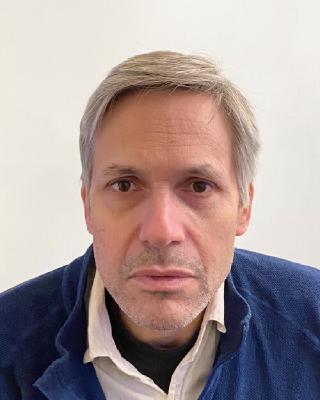Steven Cassedy: What Do We Mean When We Talk About Meaning
Book review
If you like reading about philosophy, here's a free, weekly newsletter with articles just like this one: Send it to me!
The title of this book is misleading. Steven Cassedy’s concern is with ‘meaning’ in its most general sense, which he takes to be manifested in the history of discussion about the meaning and purpose of life. But there are many philosophical theories about meaning in its most general sense which, because they are not explicitly about the meaning of life, he does not mention.
However, with regard to the historical understanding of the meaning and purpose of life, significant new ground is broken – by virtue of the fact that the author has an impressive array of languages at his disposal, including Greek, Latin, Hebrew, German, Russian and Danish. The story begins with the Jewish scriptures and continues through ancient Greece. All the while – as the author makes clear – until the very end of the eighteenth century, the meaning of life is discussed only implicitly for it is not until Novalis and Friedrich Schlegel that the phrase ‘the meaning of life’ (der Sinn des Lebens) is explicitly mentioned and it is only then that it unambiguously takes on its modern meaning. It first enters the English language from the early romantics, via Thomas Carlyle.

The author is very good at discussing the subtle differences and similarities of different senses of ‘meaning’ as found in different languages; and there are detailed discussions of Kierkegaard, Dostoyevsky, Tolstoy and Paul Tillich. Altogether this is the most comprehensive account of how the phrase ‘the meaning of life’ came to attain its current ubiquity that has yet been written.
However, inevitably there are some omissions. There is no mention of Nietzsche except for Paul Tillich’s reading of him, despite the fact that the prospect of a lack of life’s meaning was one of Nietzsche’s foremost preoccupations; there is no look further afield than the Hebrew tradition – no look, for example, at the Sanskrit texts translated by August Wilhelm von Schlegel; and no mention of nihilism. (On the parallel late eighteenth origins of nihilism see A Defence of Nihilism (2021) by James Tartaglia and Tracy Llanera. They describe ‘the meaning of life’ and ‘nihilism’ as the good and bad twins.)

The terminology of ‘nihilism’ and ‘the meaning of life’ emerged among a small group of German philosophers at the end of the 18th century who were worried about the French Enlightenment.
A more general concern is whether something should have been said about the history of the definition of ‘life’. Admittedly, the question ‘what is the meaning / purpose of life?’ is conceptually distinct from the question ‘what is the definition of life?’ Nonetheless, the answer we give to either question is likely, to some degree, to influence how we answer the other.
Throughout most of the history of philosophy it seems that these questions have been considered as closely intertwined or even inseparable. For example, Aristotle thinks it perfectly natural to step from a definition of life, to a definition of human life, to a conclusion about how we should live. Moreover, this stepping from the one question to the other is still with us – it is not a practice that has been outgrown – for example, James Lovelock’s Gaia hypothesis is viewed (by its author) as having some implications as to how we should live. Of course, since ‘what is the definition of life?’ and ‘what is the meaning / purpose of life?’ are conceptually distinct questions, we are free to choose to concentrate upon the latter question and to leave the former question to natural science, and most people (including very many highly educated people) do just that.

However, that is a relatively recent attitude, and its wisdom is debatable (see C.P. Snow The Two Cultures and the Scientific Revolution), especially since following a discussion of the definition of life, in its scientific basics, is not difficult.
Discussing not just the meaning / purpose of life but also the definition of life would have made this a more comprehensive and more interesting story. It would then have taken in, for example, vitalism and the second law of thermodynamics. It would then of course have been a much longer volume, but, for example, Aristotle’s position, and its influence, might have been given a fuller treatment.
In summary, Steven Cassedy breaks new ground in this book. But, although he has written the most comprehensive account to date of how the ‘the meaning of life’ came to attain its current ubiquity, there remains much ground to be broken.
Cassedy, S. (2022). What Do We Mean when We Talk about Meaning? Buy it here!
Amazon affiliate link. If you buy through this link, Daily Philosophy will get a small commission at no cost to you. Thanks!
◊ ◊ ◊

Stephen Leach is an Honorary Senior Fellow at Keele University, UK. He writes on themes in philosophy, archaeology, art history and human evolution.
Academia.edu page: Stephen Leach – Academia.edu
Stephen Leach on Daily Philosophy:






